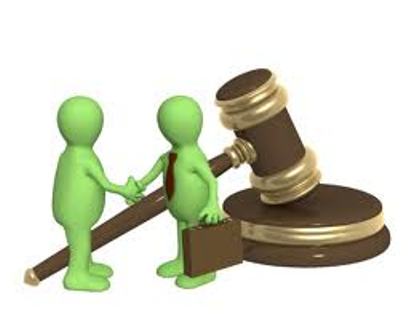
Misbau ‘Mislaw’ Lateef
The term Fourth Estate of the Realm, a descriptive term for the Press, is almost unanimously agreed to have been coined by Edmund Burke, a 19th Century British statesman and orator, who championed many human rights causes and brought attention to them through his eloquent speeches.
By this description the Press is regarded to be the fourth of the traditional three estates of the Parliament namely: The Lords Spiritual, the Lords Temporal and the Commons. In medieval Europe, the three estates depicted the clergy, the nobility, and the commoners – each of whom sat in designated dais of the Parliament. Representing the Fourth Estate then were the press men/women who sat at the Gallery of the Parliament to cover proceedings. Each estate had a very distinct social role and a certain level of power. Although, society is far more egalitarian today, the idea of the estates of the realm became so entrenched in European society.
Today, in the modern democratic set up, the three estates of the realm are depicted or given meaning by what is now referred to as the three arms of government namely: the legislature, elected representatives of the people for the purpose of law making; the executive, cabinet of ministers that take decision policies of government; and the judiciary, judges who interpret the laws and uphold the sanctity of the constitution. The fourth of these three arms, albeit without any constitutional or statutory footing as an arm of government, is still the Press up till today.
The Press, no doubt, plays a very important role in most societies, reporting on a wide variety of topics and creating powerful personalities who are relied upon for sources of information and informed commentaries. The importance of the Press was apparently what Thomas Carlyle, another 19th Century British author, had in mind when he wrote that writing gives people “a tongue which others will listen to.”
Now, what does the law says about this fourth estate of the realm in Nigeria? Constitutionally, Section 36 (1) of the Nigerian 1999 Constitution guarantees freedom of the press. It stipulates that: “(1) every person shall be entitled to freedom of expression, including freedom to hold opinions and to receive and impart ideas and information without interference”. Section 39(2) guarantees that “…every person shall be entitled to own, establish and operate any medium for the dissemination of information, ideas and opinions”. It suffices however to state that section 39 is not an absolute right as section 45 of the same Constitution permits its derogation “…by laws reasonably justifiable in a democratic society”.
In Section 22, the responsibility of the media to hold the government accountable to the people is defined. It provides thus: “the press, radio, television and other agencies of mass media shall at all times be free to uphold the fundamental objectives contained in this Chapter and uphold the responsibility and accountability of the government to the people”.
Section 16 gives the media the right and freedom to ensure that governments uphold good governance and “control the national economy in such a manner as to secure the maximum welfare, freedom and happiness of every citizen on the basis of social justice and equality of status and opportunity”.
The implication of this section of the Constitution is that the media has been empowered to investigate and criticise poor and corrupt leadership and promote political stability, economic prosperity and social justice. There is also the Freedom of Information Act which has been welcomed by all and sundry as a significant development for widening the space for freer flow of information, transparency and accountability in governance.
However, there are many laws that are capable of undermining and have indeed undermined the above provisions of the law on the freedom of the media. A number of laws (Official Secrets Act, 1962; Press Registration Act, 1933; Newspaper Act, 1917; etc) including the unlimited powers of the National Broadcasting Commission (NBC) and the Nigerian Press Council, both of which are Federal Government agencies can, if inappropriately exercised – as has often been the case, undermine the establishment and unrestricted operations of the independent media.
So, how has the Nigerian media then fared in the midst of the above legal regimes? No doubt, Nigeria has had varying degrees of freedom of the press over its tumultuous history. There has generally been a diversity of voices in the media; however, as the government changed hands frequently and in different circumstances, the media voices that were in support of a leader would find themselves without a voice as a replacement emerged. At some points, newspapers and magazines were proscribed entirely due to their criticism of government authorities. Unfortunately, since the return of democracy to Nigeria in 1999 and hence the ongoing fourth republic, the repression and suppression of the media has not abated.
Apparently worried by the seemingly increasing attack on the press by the Goodluck Jonathan administration, the United States has told the administration of President Goodluck Jonathan to ensure press freedom. As widely reported in the media, the U.S made its position at a public forum through its Consular General in Nigeria, Jeffery Hawkins, who was reported to have stated in Lagos this past Wednesday at a programme to celebrate Joe Okei-Odumakin, who was recently honoured with the International Women of Courage Awards by the U.S. government for her steadfast struggle for entrenchment of democracy and the respect for human rights, that “The freedom of the press is crucial. Nigerian vibrant media should be allowed to operate freely”.
Mr. Hawkin’s statement, no doubt, came at a time the Nigerian government is intensifying its strong-arm approach at silencing media organisations across the country. Early this month alone, four journalists from the Leadership Newspapers were detained for refusing to name the source of a story published in that newspaper which alleges that the President is planning to truncate the merger of opposition political parties in the country. It is disturbing also that under our so called constitutional democracy journalists have been charged with criminal sedition for publishing story indicating that presidential jets were not new but refurbished.
In a manner suggestive of an unfortunate throw back into the military era, media houses have been shut down by our democratic governments on account of publishing news that embarrassed governments. Indeed, the closure of Channels Television and the Insider Magazine in the not so distant past clearly demonstrated the fact that the media is not safe from repression and suppression even under our so called democratic government. The list is simply endless!
Meanwhile, in the midst of all these gloomy pictures on the press freedom it is heartwarming to note that the judiciary, the third estate of the realm, has exhibited courage in upholding the sanctity of the Constitution, at least to some commendable extent. An example of such courage was the Nigerian Press Council Act recently nullified by the Federal High Court. This was a law enacted to repress the press and prevent criticism of the government in power. There is also the courageous judgement handed down in the case of Nwankwo v. The State in favour of press freedom where the Court held that sections 50 and 51 of the Criminal Code on seditions are unconstitutional.
Whilst it may not be yet uhuru for press freedom in Nigeria, it is heartwarming and reassuring that every attempt to suppress the media have always ended up in strengthening it to the detriment of the suppressors
Established in March 2013, JarusHub is a Nigerian information hub with focus on career and management. It is rated Nigeria's most authoritative destination for online career resources. It parades an array of Nigerian professionals who share their career experiences with a view to bridging career information gap and mentoring a generation to success. Whether you're a student, a recent graduate or an established professional, or even an executive, you will always find something to learn on JarusHub. All enquiries to jarushub@gmail.com or 0808 540 4500. Facebook: www.facebook.com/jarushub; Twitter: @jarushub or @mcjarus.
2 comments
Let us have your say by leaving a comment belowCancel reply
Recommended For You
-
Revitalizing the Nigerian economy: Beyond western dependence (i)
November 13, 2013 -
Dear Jarus, what am I getting wrong? Saanu aje
October 31, 2013






For me, our leaders still do not understand what is meant by democracy and what it means to lead a democratic state. They still believe like you have in the military era where everything is done secretly and do not need to be known by the led and the led only need to accept whatever has been handed to them, whether good or bad without asking questions. Unfortunately, the media today is now being aided by technology that its revolution cannot be stopped, hence, it is becoming easier to get access to information and dissemination of same. If the right things are done, why do you even need to repress the press? This and many other questions are what they must answer.
The introductory part of this piece is highly educative, keep it up Mislaw.
Very interesting and educating, please can you make available in your subsequent editions relevant citations of all works and cases cited.
It is necessary for academic purpose and easy reference.